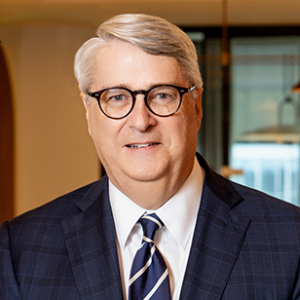Competition Can Be Beneficial, But Also Corrosive
April 1, 2016 I Tennessee Bar Journal I William L. Harbison
Bar associations have long noticed that lawyers, more than members of many other professions, are disposed to depression, substance abuse, and similar problems. Local and state bars have worked to establish groups for lawyers-helping-lawyers and lawyers’ assistance programs. The TBA has promoted “better next year” as a way of motivating lawyers to practice good physical and mental health and to focus on balancing life and work. A recent study conducted by the American Bar Association Commission on Lawyer Assistance Programs and the Hazelden Betty Ford Foundation found that rates of problem drinking and mental health issues increased as individuals spent more time in the legal profession. This is an issue for bar associations that deserves our attention every year, and I believe it is related at least in part to the competitive nature of lawyers.
Merriam-Webster defines competition as “the act or process of competing; the effort of two or more parties acting independently to secure the business of a third person by offering the most favorable terms; active demand by two or more organisms or kinds of organisms for some environmental resource in short supply.” I suggest in this column that a bad type of competition contributes to the problems of lawyer unhappiness.
Of course, competition can have enormous beneficial effects as well. Good competition encourages improvement and achievement. Most law students got into their law schools by excelling academically and achieving success in this way. Success in the profession of law can be a pathway to upward mobility for many in our society. In short, healthy competition can be positive and constructive.
But competition can also be corrosive. Many commentators have noted that the pressure to produce billable hours (and the revenue that goes with them) contribute to stress and unhappiness. One comment I found suggests that many good lawyers are pessimists: they are good at seeing the dire consequences of various courses of action. A lawyer often looks for “what is the worst that can happen” and plans from that starting point. Another article suggested that inside law firms there is competition among partners and other lawyers for business generation, for resolution of conflict of interest questions, for status and for compensation. This kind of internal competition is rarely discussed. Perhaps it is seen as unprofessional, but it is a reality. It certainly goes against what law firms of all sizes say publicly about collaboration and collegiality. All of these factors create a kind of competition among lawyers that is not healthy for our profession.
The poet and writer Randall Jarrell had some helpful things to say about competition. Jarrell was a native of Nashville and probably one of the best literary critics of the 20th century. He attended Hume-Fogg High School in Nashville and graduated from Vanderbilt University in 1935. His literary criticism evolved over his life. His early work was witty but sharply critical; he later became accepting and encouraging of fellow poets and writers. Jarrell noted that the poet William Blake made a comment, while reading Wordsworth, that “there is no competition among true poets.” Jarrell liked Blake’s comment and used it himself in his writing. I think that Jarrell meant to say that certain endeavors do not need to be viewed as competitions. That our best work need not be a competition. It is a lesson worth remembering for lawyers as well as poets.
















